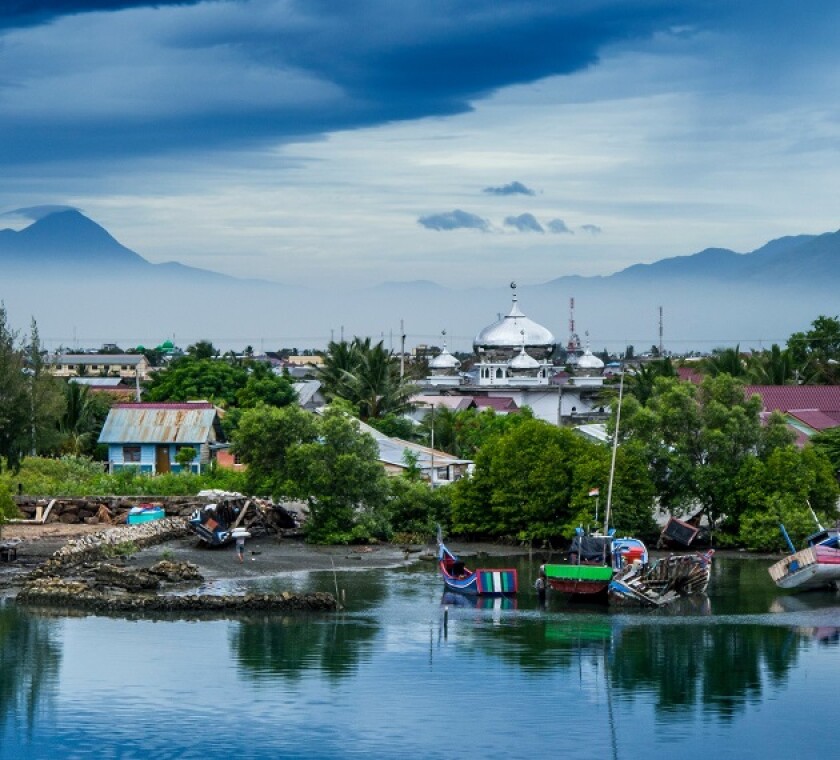Tax incentives
On July 1 2021, the Minister of Finance (MoF) issued Regulation No. PMK 82/PMK.03/2021 (PMK-82) as the amendment of MoF Regulation No. 9/PMK.03/2021 (PMK-9) concerning tax incentives for taxpayers affected by COVID-19. PMK-82 is issued mainly to extend the period of granting incentives from July to December 2021.
The main points of PMK-82 are as follows:
Extend the tax incentive period for Article 21 income tax, Article 25 tax installment, Article 22 import tax, and preliminary VAT refund until the December 2021 tax period.
Provide additional Article 19A and 19B, with the main points as follows:
Article 19A
The taxpayer must register by submitting a notification letter in a certain format through the DGT website to utilise the tax incentives.
Taxpayers with certain gross revenue must submit the realisation report of final tax borne by the government through the DGT website to utilise the tax incentives.
Article 19B
The taxpayer can utilise the tax incentive starting from the July 2021 period by submitting the notification letter no later than August 15 2021.
A taxpayer who has reported the realisation report on the utilisation of tax incentives for the January–June 2021 periods may still be able to make amendments no later than October 31 2021.
PMK-82 became effective on July 1 2021.
Tax facilities for goods and services
The MoF has issued Regulation No. 83/PMK.03/2021 (PMK-83) dated July 1 2021 as the amendment of MoF Regulation No. 239/PMK.03/2020 (PMK-239) regarding the tax facilities for goods and services required in the handling of the COVID-19 pandemic and the extension of income tax facilities based on government Regulation No. 29 of 2020 regarding income tax facilities for handling COVID-19.
The tax facilities stipulated in PMK-83 remain the same; the main point of this regulation is extension of the period for the tax facilities, which are now applicable until December 31 2021.
PMK-83 became effective on July 1 2021.
Customs and taxation incentives for import goods
The MoF has issued Regulation No. 92/PMK.04/2021 (PMK-92) as the third amendment of MoF Regulation No. 34/PMK.04/2020 (PMK-34) regarding customs and taxation Incentives for Import goods related to handling the COVID-19 pandemic.
PMK-92 updates the detailed list of goods by adding several goods on the list (e.g. test kit and laboratory reagent, oxygen, respiratory therapy devices, etc.). Details of each category are listed in the attachment of PMK-92.
PMK-92 became effective on July 12 2021.
Sales tax on luxury goods
The MoF has issued Regulation No. 96/PMK.03/2021 dated July 22 2021 as the amendment of MoF Regulation No. 35/PMK.010/2017 (PMK-35) and MoF Regulation No. 86/PMK.010/2019 (PMK-86) concerning the determination of taxable goods subject to sales tax on luxury goods other than motorised vehicles and procedures for exemption from the imposition of sales tax on luxury goods (PPnBM).
The main points of this regulation are:
Under the old regulation i.e. PMK-86, the PPnBM only applied to luxury apartments, town houses or other similar types with a value greater than IDR30 billion (approximately $2.1 million). However, the new regulation expands this to other goods such as aircraft, firearms, cruise ships and yachts. Details of description of luxury goods are listed in first attachment of PMK-96.
Types of taxable goods classified as luxury other than motor vehicles subject to PPnBM are set at rates of 20%, 40%, 50%, or 75%.
The PPnBM is exempted on the import or delivery of:
a) Firearm bullets and/or other firearm ammunition for state purposes;
b) Aircraft with drive power for state purposes or commercial air transportation;
c) Firearms and/or other firearms for state purposes;
d) Cruise ships, excursion ships, and/or similar vessels that are primarily designed for the transportation of people, ferries of all types and/or yachts for the benefit of the state or public transportation; and
e) Yachts for tourism businesses.
The above exception (points a) to d) above) is granted to the taxpayer without having an exemption certificate of PPnBM (SKB PPnBM) as long as the goods have already obtained facility of the VAT exempted or VAT not collected. Otherwise, the taxpayer should obtain the SKB PPnBM from the tax office to get the exemption.
To obtain SKB PPnBM, the taxpayer should submit an application together with the required supporting documents to the Directorate General of Taxation (DGT) through the DGT website or website that is integrated with the DGT system.
PMK-96 became effective on July 26 2021.
Hartiadi Budi Santoso
Partner, GNV Consulting
Dwipa Abimanyu Dewantara
Senior manager, GNV Consulting













